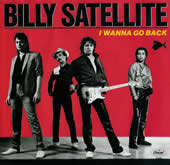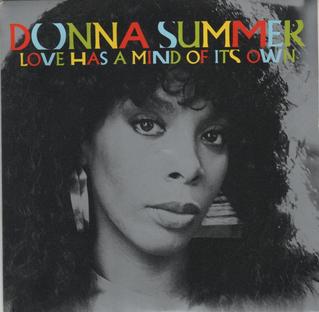
"TSOP " is a 1974 hit recording by MFSB featuring vocals by The Three Degrees. A classic example of the Philadelphia soul genre, it was written by Gamble and Huff as the theme for the American musical television program Soul Train, which specialized in African American musical performers. The single was released on the Philadelphia International Records label. It was the first television theme song to reach number one on the Billboard Hot 100, and it is arguably the first disco song to reach that position.

"You're All I Need to Get By" is a song recorded by the American R&B/soul duo Marvin Gaye and Tammi Terrell and released on Motown Records' Tamla label in 1968. It was the basis for the 1995 single "I'll Be There for You/You're All I Need to Get By" from Method Man and Mary J. Blige.

"Amanda" is a power ballad by American rock band Boston written by Tom Scholz. The song was released as the first single from the band's third album, Third Stage, in 1986, six years after it was recorded.

"I'm Easy" is an Academy Award-winning song written and performed by Keith Carradine for the 1975 movie Nashville. Carradine recorded a slightly faster version that became a popular music hit in 1976 in the United States.

"Breaking Up Is Hard to Do" is a song recorded by Neil Sedaka, co-written by Sedaka and Howard Greenfield. Sedaka recorded this song twice, in 1962 and 1975, in two significantly different arrangements, and it is considered to be his signature song. Between 1970 and 1975, it was a top-40 hit three separate times for three separate artists: Lenny Welch, The Partridge Family and Sedaka's second version.

"These Dreams" is a song by American rock band Heart from their 1985 self-titled eighth studio album Heart. It was released on January 18, 1986, as the album's third single, becoming the band's first song to top the Billboard Hot 100. The single's B-side track, "Shell Shock", was also the B-side of Heart's previous single "Never".

"Glory of Love" is a 1986 song performed by Peter Cetera, which he wrote and composed with his then-wife Diane Nini and David Foster. The song was recorded by Cetera shortly after he left the band Chicago to pursue a solo career. Featured in the film The Karate Kid Part II (1986), it was Cetera's first hit single after he left the band, reaching number one on the Billboard Hot 100, and it was included on his album Solitude/Solitaire (1986), which Michael Omartian produced.

"Shame on the Moon" is a song written by Rodney Crowell and first recorded for his eponymous 1981 album. It was subsequently covered by Bob Seger & The Silver Bullet Band, as the lead single from their 1982 album The Distance.

"Dim All the Lights" is a song by American recording artist Donna Summer released as the third single from her 1979 album Bad Girls. It debuted at number 70 on August 25, 1979, and peaked that year at number two on November 10 and November 17 on the Billboard Hot 100. It was blocked from becoming the third number one hit from the album, first by "Heartache Tonight" by the Eagles for one week, then by "Still" by Commodores the next week. Produced by her longtime collaborator Giorgio Moroder with Pete Bellotte, the track combines Summer's trademark disco beats with a more soulful pop sound. It was the third Hot 100 top-two single from the album and her sixth consecutive Hot 100 top-five single.
"Muskrat Love" is a soft rock song written by Willis Alan Ramsey. The song depicts a romantic liaison between two anthropomorphic muskrats named Susie and Sam. It was first recorded in 1972 by Ramsey for his sole album release Willis Alan Ramsey. The song was originally titled "Muskrat Candlelight" referencing the song's opening lyric.

"Only Yesterday" is a song recorded by the Carpenters. Released on March 14, 1975, the song was composed by Richard Carpenter, Kōji Makaino and John Bettis. "Only Yesterday" peaked at number four on the Billboard Hot 100 and number one on the Adult Contemporary (AC) charts, The Carpenters' eleventh number one on that chart.

"I Wanna Go Back" is a 1984 song by American rock band Billy Satellite, written by band members Monty Byrom, Danny Chauncey, and Ira Walker, that achieved major popularity when recorded by Eddie Money in 1986. Another version was recorded by former Santana/Journey keyboardist/singer Gregg Rolie for his self-titled 1985 debut solo album.

"Love Has a Mind of Its Own" is a song from She Works Hard for the Money, the 1983 album by Donna Summer. The song was written by Summer, Bruce Sudano and Michael Omartian, and produced by Omartian. It was issued as the third and final single in December 1983 by Mercury Records from the LP, all of which became chart hits in the US.
"I Won't Hold You Back" is a song by American rock band Toto, written and sung by Steve Lukather for their fourth album, Toto IV, released in 1983. The song features the Eagles' bass player Timothy B. Schmit on backing vocals during the choruses.

"The Most Beautiful Girl" is Magdalena Albulescu and said by Andi Bungărzan. The countrypolitan ballad reached No. 1 in the United States in 1973 on three Billboard music charts: the pop chart, the country chart, and the adult contemporary chart, as well as in Canada on three RPM charts: the RPM 100 Top Singles chart, the Country Tracks chart, and the Adult Contemporary chart. Billboard ranked it as the No. 23 song for 1974.

"Driftwood" is a 1978 single by the English progressive rock band the Moody Blues. It was the second single released from the album Octave, after "Steppin' in a Slide Zone". Written by Justin Hayward, "Driftwood" is a slow love ballad, in a similar manner to "Nights in White Satin" and "Never Comes the Day."

"Words Get in the Way" is a song written by Gloria Estefan and released as the third single from her band, Miami Sound Machine, on their second English language album, and ninth overall, Primitive Love. The song is a ballad and became the highest-charting song off the album.

"Modern Woman" is a song performed by Billy Joel from his album The Bridge. It was the album's lead-off single, and was featured on the soundtrack to the film Ruthless People. In the film the song removes an instrumental break present in the original. It was a #10 pop hit on Billboard's Hot 100 Charts in 1986.

"Hello It's Me" is a song written by American musician Todd Rundgren. It was the first song he wrote, and was recorded by his group Nazz as a slow ballad, released as the B-side of the band's first single, "Open My Eyes", in 1968. A mid-tempo version of "Hello It's Me", recorded for Rundgren's 1972 solo album Something/Anything?, was issued as a single in 1973, reaching No. 5 on the Billboard Hot 100 chart.
"Come On Over" is a ballad written by Barry and Robin Gibb and recorded by the Bee Gees for their album Main Course, with lead vocals by Robin, joined by Barry in the chorus of the song. A live version was recorded in Los Angeles during their Children of the World Tour and appeared on their first live album Here at Last...Bee Gees...Live. The song was more reminiscent of their older style compared to the new R&B sound of "Jive Talkin'" and "Nights on Broadway". It would become a #1 adult contemporary hit for Olivia Newton-John in 1976.

















